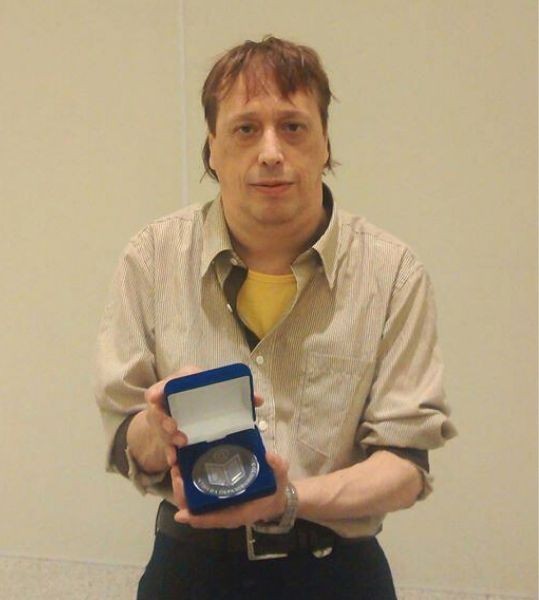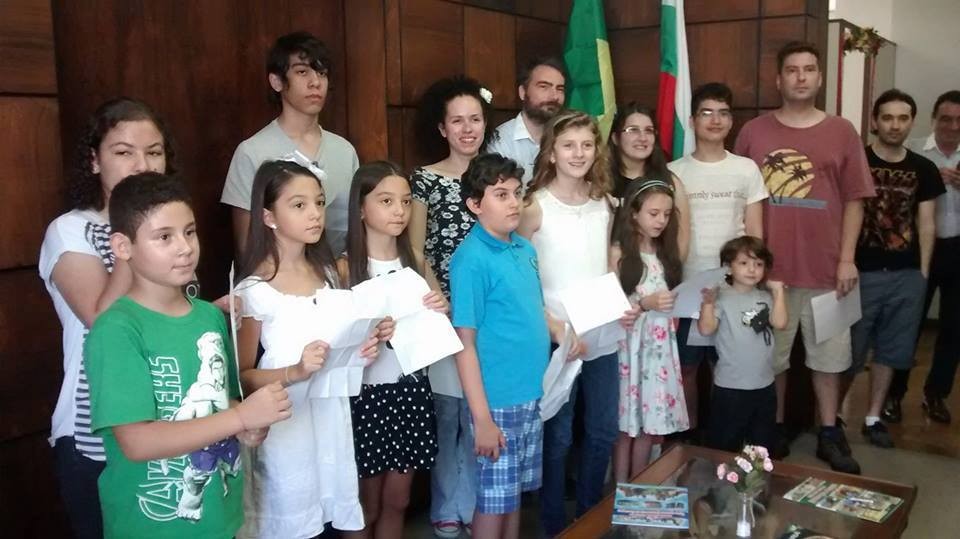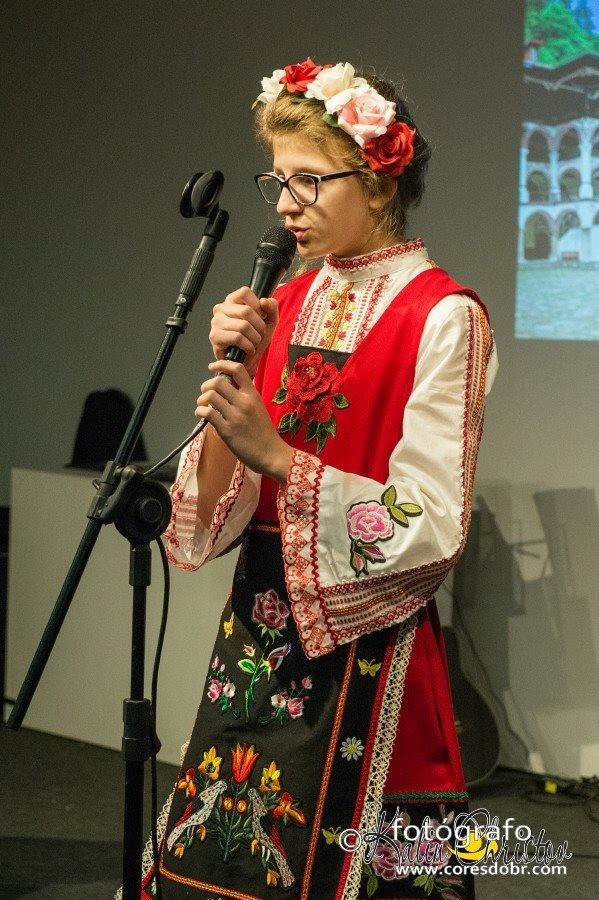Even though they are thousands of kilometres away from Bulgaria, our compatriots in distant Brazil keep alive the Bulgarian spirit there. 11 years ago, on the historic date of March 3rd, Bulgaria’s National Day of Liberation, the first Bulgarian Sunday school in all of South America was established in Sao Paulo. Originally a Bulgarian language course, in 2011 it was included in the National Program for Bulgarian schools abroad, and since 2015 it has been recognized as a school at the Bulgarian Embassy in Brazil and enjoys its unreserved support. Today, 65 students study there – by attending classes and also online which helps the school reach children with Bulgarian roots as far as the most remote corners of the Latin American country who want to study Bulgarian.
Among the highlights in the cultural program of the school are the dates May 11th and May 24th - the day of the Holy Brothers Cyril and Methodius in the old and new style. On May 11, 2018, under the auspices of the Bulgarian Ministry of Education,the initiative "Roses of Bulgaria" was held for the first time, in which all Bulgarian schools abroad dance, organizing other accompanying outdoor events.
 "With these events in the last two years, we have ignited even the interest of Brazilians in our holidays and the date May 11th has become the Day of Bulgaria in Sao Paulo. Bulgarians from all over Brazil come to our events to immerse themselves in an incredible atmosphere," says the founder of the Bulgarian school Mikhail Krastanov. The celebration is held at the Museum of Emigration.
"With these events in the last two years, we have ignited even the interest of Brazilians in our holidays and the date May 11th has become the Day of Bulgaria in Sao Paulo. Bulgarians from all over Brazil come to our events to immerse themselves in an incredible atmosphere," says the founder of the Bulgarian school Mikhail Krastanov. The celebration is held at the Museum of Emigration.
"Brazil is made up of different nationalities. This museum shows the entire history of emigration. Emigrants from different continents were once housed in this building and from there they were transported to the reed plantations. Among them were Bulgarians from the first Bulgarian wave of emigration in 1930. Today the museum is a wonderful place for attractions. At our first event there, including a concert, which filled a hall with over 200 seats, the director of the museum came to me and said: "I had never seen such a beautiful thing. Whenever you want, we are at your disposal." People from other nationalities joined the open-air traditional Bulgarian round dance and it triggered their interest in Bulgaria even more. That's the point," sums up Mikhail.
The complicated situation around the coronavirus in Brazil this year changed the plans for the holidays of our compatriots. But as Bulgarians who do not give up easily, they decide to hold the “Roses of Bulgaria" online.
"We have talented children. Some sing very beautifully, others recite poems well, others dance. We have small children - good musicians who perform musical pieces from home," said Mikhail. This is how a magnificent and emotionally saturated video was created, uploaded on Youtube, in which the main characters are the children of Bulgaria in distant Brazil.

However, what motivates these children to attend the Bulgarian school, spending one day from each of their weekends there?
 "My father is Bulgarian. I have been to Bulgaria three times. My grandparents, my cousins live in Sofia. I study Bulgarian so that I can talk to them, and also learn more about Bulgarian culture and history,"says 9-year-old Julia Hazarbasanova.
"My father is Bulgarian. I have been to Bulgaria three times. My grandparents, my cousins live in Sofia. I study Bulgarian so that I can talk to them, and also learn more about Bulgarian culture and history,"says 9-year-old Julia Hazarbasanova.
In response to my question about what sustains her love for Bulgaria thousands of kilometres away, another student from the school in Sao Paulo - 13-year-old Sofia Spasova Costa, says:
"Bulgaria is very important to me because my mother is Bulgarian. My cousins live in Sofia and I love being with them. Bulgaria represents for me a type of nature and climate that I can feel only there. I really like the seaside, especially Sozopol and Nessebar. Bulgaria is my second home."
The Sunday school educates mainly children from mixed marriages or of Bulgarian families sent to Brazil for work. Mihail Krastanov, Iglika Spasovska and Zornitsa Popovawho is responsible for the study of Bulgarian folklore and extracurricular activities work with them. Twice a month the children present what they have learned so far in open lessons.
Many of the children later return to Bulgaria. Their smooth and successful inclusion in the Bulgarian educational system is a testament to a work well-done bythe teachers in the Bulgarian Sunday school in Sao Paulo.
English version Rossitsa Petcova
Photos: courtesy of Mikhail Krastanov
Fun physics experiments from all branches of physics, demonstrations of methods for searching for new worlds in space, the necessary conditions to call a planet ''Earth's twin'', meeting with Bulgarian exoplanet hunters at the Astronomy Department -..
700 Bulgarians have been diagnosed with haemophilia. 100 of them are children. The disease is usually hereditary, and the recommendation to families is to have their newborn boys tested at birth. Until recently, it was thought that only males..
Bulgaria is increasingly becoming part of the general trend and dynamics of European citizens changing their location. There are no inhospitable European countries, rather it is a matter of policies and different interests of the..
Bulgaria is increasingly becoming part of the general trend and dynamics of European citizens changing their location. There are no..
700 Bulgarians have been diagnosed with haemophilia. 100 of them are children. The disease is usually hereditary, and the recommendation to..
Fun physics experiments from all branches of physics, demonstrations of methods for searching for new worlds in space, the necessary conditions to call..

+359 2 9336 661
